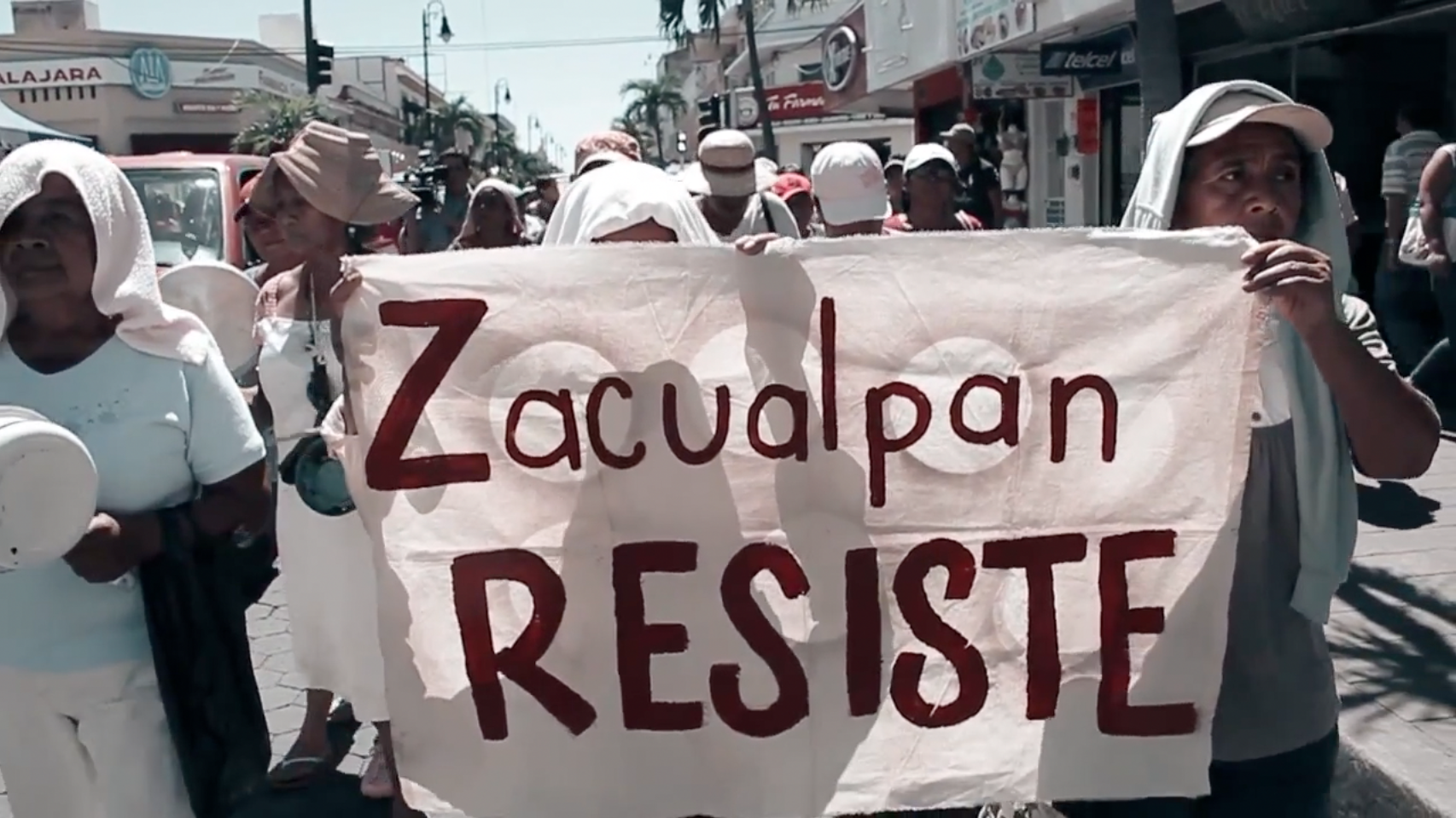Like this article? rabble is reader-supported journalism. Chip in to keep stories like these coming.
The Nahua Indigenous community of Zacualpan in the state of Colima, Mexico set out to learn about the implications of potential mining activities in 2013.
Residents of the small town of Zacualpan in the State of Colima formed the Indigenous Council for the Territorial Defence of Zacualpan to gather information about social and environmental impacts related to large-scale mining and to engage with people in the nearby city of Colima. They called on local environmental organization, Bios Iguana, for assistance. Shortly later, they visited the state of Guerrero where Canadian company Goldcorp has operated the Los Filos open-pit gold mine since 2008, where they heard the experiences of local residents and the opinions of scientists.
In February 2014, the community of Zacualpan declared its territory free of mining, and members of the Indigenous Council were elected as local agrarian authorities.
Zacualpan’s struggle continues, however, as powerful economic and political forces with an interest in retaking power in the community and seeing mining activities go ahead, work to manipulate residents, interfere with local governance, and intimidate members of the Indigenous Council and Bios Iguana.
Esperanza Salazar, the coordinator of Bios Iguana, visited Canada in the fall of 2015 to tell the story of her organization and the community of Zacualpan. We made a series of four short videos based on an interview she gave to MiningWatch Canada, incorporating photographs and footage taken locally from 2013 to 2015.
Zacualpan Part 1: A Story of Struggle and Success
Esperanza tells us about community’s process to adopt an informed stance on mining in its territory.
Zacualpan Part 2: Strategies for Territorial Defence
When Mexican government bodies failed to respond to complaints about interference from Colima State authorities, police intimidation and death threats — not always made anonymously — the Indigenous Council, with Bios Iguana’s help, took their case to a number of United Nations agencies. They are awaiting the results of these submissions. Alliances with national and international social justice organizations –such as the Mexican Network of Mining Affected Peoples (REMA its initials in Spanish) — are strengthening the local movement and contributing to struggles in other parts of the country.
Zacualpan Part 3: Living under Threat
Esperanza recounts numerous examples of death threats directed toward the Indigenous Council and Bios Iguana. She herself has been targeted, as described by MiningWatch’s Jen Moore who took part in the “International and National Observation Mission regarding the case of Zacualpan” that visited the area in early March 2015 and experienced the tensions affecting the community.
Zacualpan Part 4: Criminalization
Colima state authorities have been demonizing Esperanza and Bios Iguana by spreading false information about them in an effort to undermine and destroy their organization. One official in particular, María Elena Díaz Rivera, representative in Colima of the central Agrarian Attorney’s Office, made very specific accusations that community members thoroughly discredit. On March 23, 2016, María Elena Díaz Rivera was suspended from her post on the basis of complaints filed by the Indigenous Council, REMA and the Mesoamerican Movement against the Extractive Mining Model (M4).
Learn more about how Zacualpan’s struggle is part of regionwide struggles to defend land and the environment from industrial mining and related trends to criminalize dissent.
A big thank you to Susan Murdock for producing these videos and making this project possible.
Like this article? rabble is reader-supported journalism. Chip in to keep stories like these coming.



